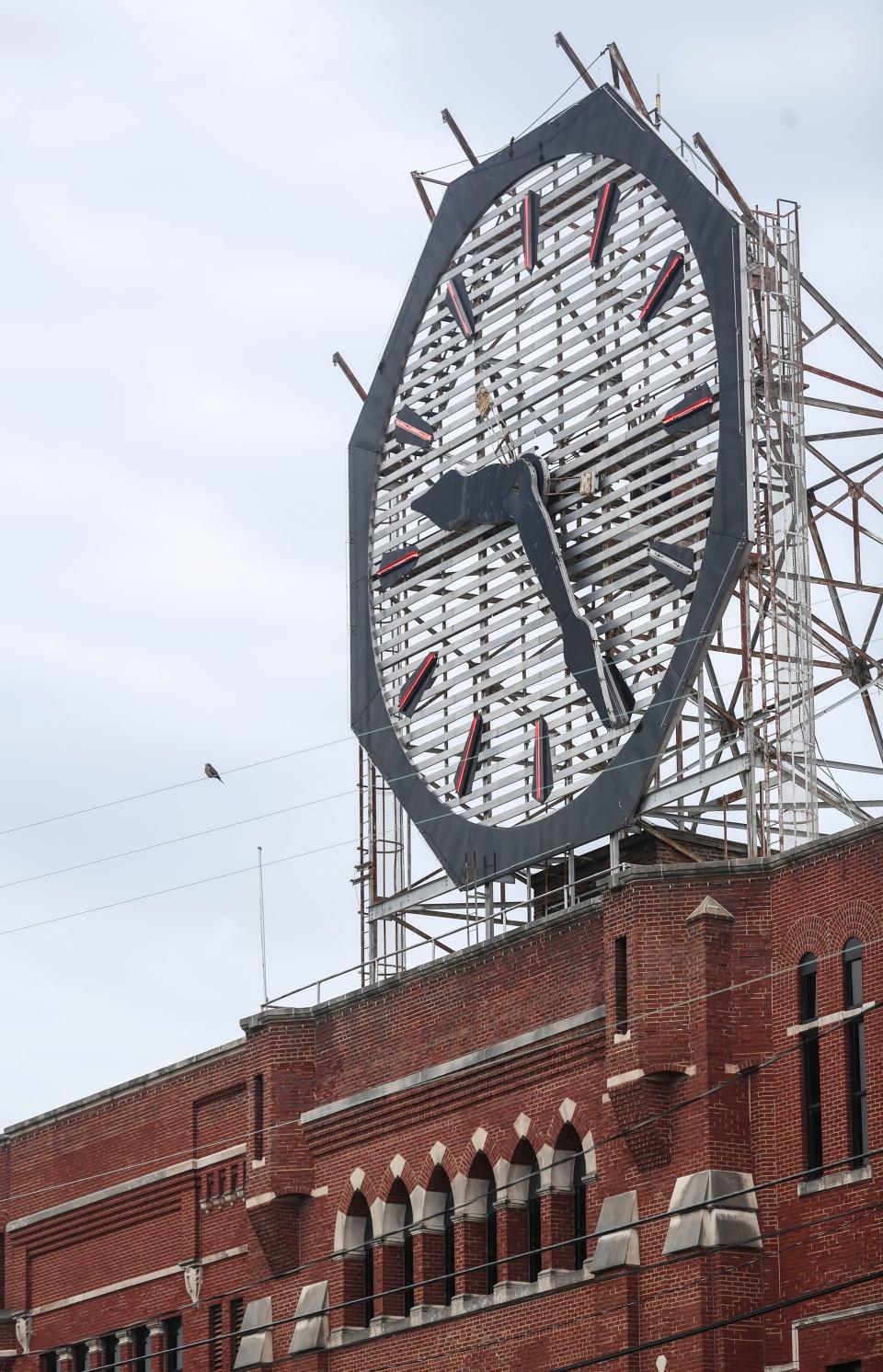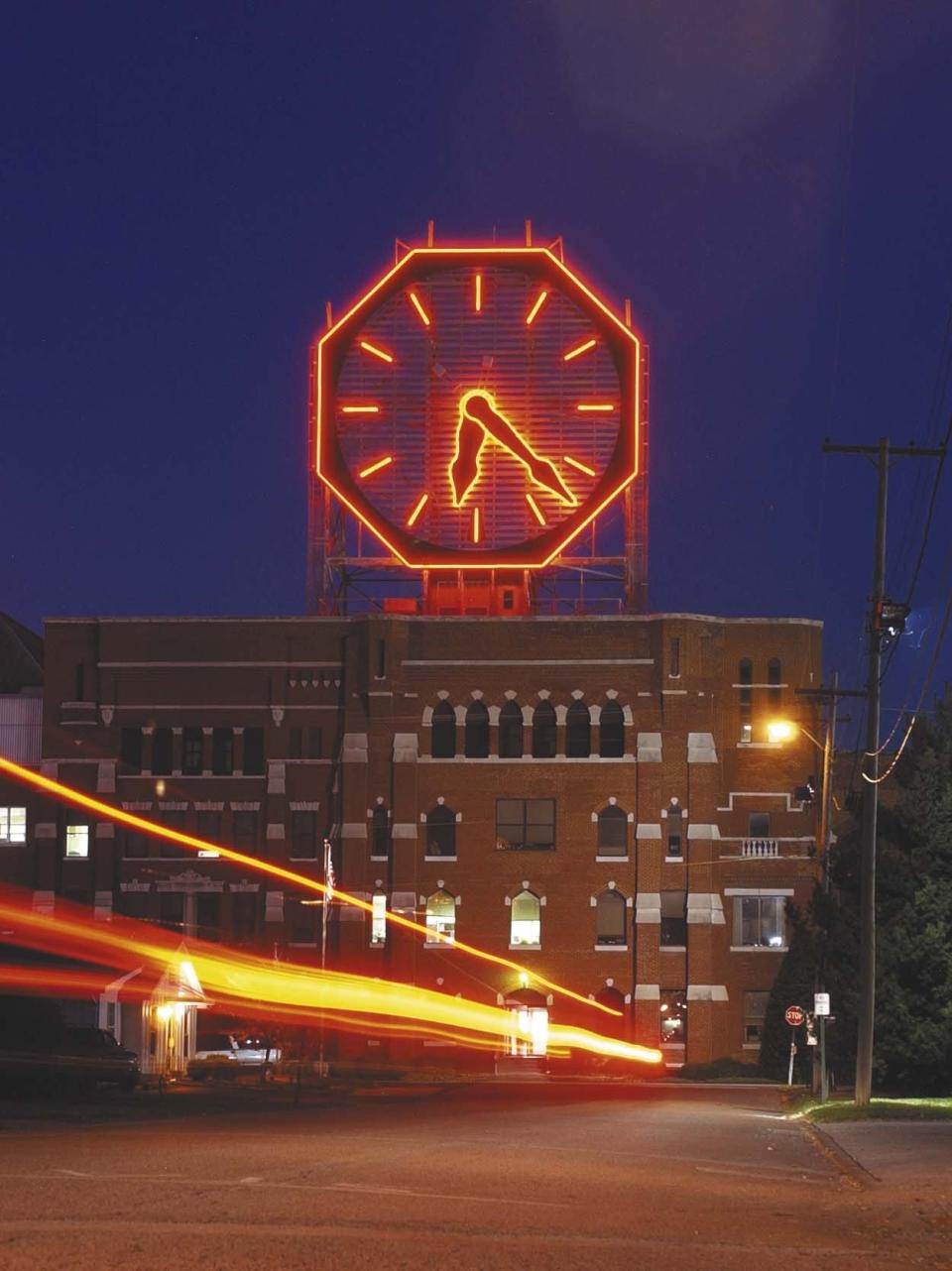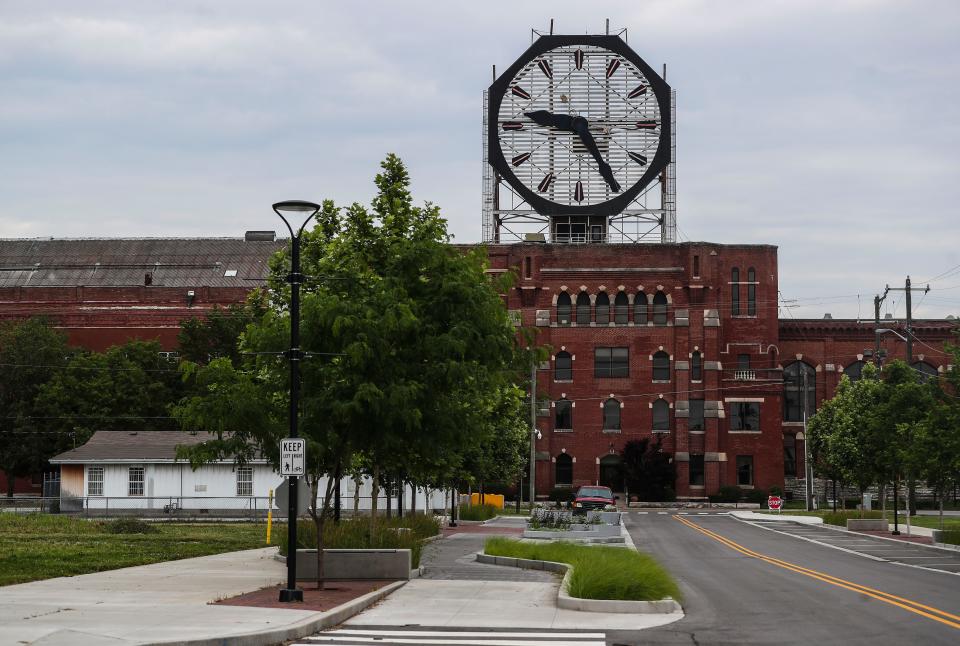Clarksville town council invokes eminent domain to keep Colgate clock ticking
CLARKSVILLE, Ind. — Time is catching up to Southern Indiana's old Colgate plant after Clarksville town officials voted unanimously last week to use a rarely-invoked power to acquire the site from a development company.
Town officials said it will take ownership of the 54-acre site through eminent domain, a special action that allows the government to take control of private property for public use, with compensation provided to the site's owner.
The property at 1410 S. Clark Blvd. has sat largely dormant since it was acquired in 2011 by a development group that promised to bring jobs to the area, and town officials say they are tired of watching the building deteriorate.
"Since Colgate was acquired more than 11 years ago, we have witnessed the depreciation and degradation of one of the town's most historic sites," Council President Ryan Ramsey said at a news conference on Friday. "This is something that is very near and dear to each of us, and we have made commitment that we're not going to allow the historic prison site to suffer this fate."
Town council members said they did not make that decision lightly.
"Condemnation is always used as a last resort, and we have exhausted all other options," they wrote in a statement released Thursday. "If we allowed for the site to continue to degrade for another 11 years, it would likely require demolition.”
Promises of more jobs unfulfilled
The site was purchased by Boston Development Group LLC in 2011, and ownership was transferred to Clarks Landing Enterprise Investments a few years later. The groups have the same owners.
Jay Sheth was the managing partner of Boston Development when it purchased the site, and he said then the site would exceed Colgate's peak employment of 1,600 jobs by 2020, but it's been more than a decade since that promise was made.
Justin Endres, an attorney for property owner Clarks Landing Enterprise Investments, said the site's current owners applaud efforts by the town to improve the area near the facility. Retail and apartment options like the Bolt + Tie complex have opened in recent years, and steps are being taken by local officials to continue development in the area.
Updating: 2022 guide to new Louisville businesses: Retail, downtown and more
Endres said, however, that taking the property by eminent domain is an overstep of authority. He said via email the owners have "multiple shovel-ready projects, including an ALoft hotel project as well as a multi-family project that we still intend to pursue."
During last week's meeting, Sheth said his group had interest from a company with high-paying cyber security jobs, according to a report from the News and Tribune.

Funding a project that reuses a historic property can cost up to 50% more than building on open land, Endres said. He urged the town to help develop infrastructure around the site, like road and utility improvements and potential tax-increment financing that would ease costs for the current owners, instead of taking it via eminent domain.
"If the town truly wants to see progress while preserving our heritage, we encourage them to step up to the plate to help move these projects forward rather than stand in the way," Endres wrote.
Preservation of an historic property
The site became Indiana's only prison in the mid-1800s, and it was acquired by Colgate Co. in the 1920s, with the clock added soon afterward. Colgate shut down the toothpaste factory in 2007.
Town officials have said their aim in taking over the property is to "preserve the historical integrity of the facility, including the famous Colgate Clock."
You may like: Step inside the 8 Louisville hotels and restaurants that earned AAA's Four Diamond honors
The property was placed on the National Register of Historic Places in 2019, as its clock is one of the larger single-faced clocks in the world. It has a 40-foot diameter, and its lights have been a staple of the area's riverfront near the Second Street Bridge for decades.

Town officials are fighting for the preservation of the site after waiting over a decade for new jobs promised by the development company.
"The residents of Clarksville deserve better than what we have been getting over the last 11 years," Ramsey said at a news conference Friday. "We are anxious and look forward to the day when the clock is working and lit, and those buildings are properly preserved."
Endres contends that 20 buildings on the site currently have about 850,000 square feet of useable space, noting the building with the clock is just a small part of a much larger property. Owners have spent millions of dollars on renovations in recent years, he said, while putting together a plan for the site's future.
"We still plan to continue bringing high paying jobs and business into the Town on this site and others in south Clarksville," Endres said. "We believe in south Clarksville and are happy to be part of it. We do not believe the town has the authority to ultimately take the property."
The queens of Louisville: They're loud, proud & unbowed. But celebrity comes with a cost
The move comes just weeks after town officials revealed plans to create a "downtown" district in the area, with a new street grid near the riverfront to encourage walkability around a core of retail and apartments near Ashland Park.
The town and the Clarksville Redevelopment Commission have invested $30 million into the new project so far and expect it to be completed by late 2023.

Former Clark County attorney Greg Fifer said at Friday's news conference that, to legally use eminent domain to acquire a site, the property in question must either include unsafe or dilapidated buildings, or buildings that are "unfit for human habitation."
"We think that it's pretty open and obvious that there are numerous buildings on the Colgate site that fit into those categories," he said, while offering a reassurance that the clock is located in a building the town thinks will be easy and cost-effective to redevelop.
For subscribers: Kentucky groups planning to help women find, finance abortion out of state if Roe falls
Reporter Caleb Stultz contributed. Contact our reporters at RNJohnson@gannett.com or @raej_33 on Twitter, tbirmingham@gannett.com and laulbach@gannett.com.
This article originally appeared on Louisville Courier Journal: Clarksville, Indiana, pushes for condemnation to save Colgate clock

